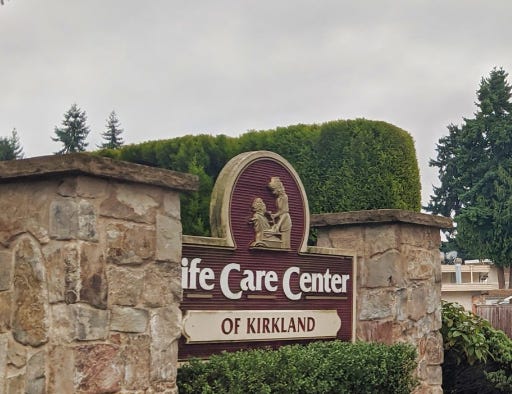Covid Exposure: 5 years later
The sudden arrival of a novel coronavirus cast a bright light on the contours of our country and culture
With this month hitting the 5-year mark for the beginning of the Covid pandemic, I see a lot of pieces about the lies of institutional authorities, the failures of our public health institutions, and the “now it can be told” pieces in which everyone accepts a truth that was once labeled “misinformation”.
There is (justifiably) a lot of bitterness about what happened in and around Covid. Everyone now agrees that school closures were bad, quarantines were ineffective, and mask and vaccine mandates probably did more harm than good. While I recognize the benefits of hindsight, I’m more interested in how and when a given individual changed their position and how they plan to improve their decision-making faculties in the future.
I’ve written plenty about frustrations surrounding the pandemic, about the dishonesty of public health institutions, about how most news media organs simply abandoned their responsibility to deliver hard news and provide valuable context. It’s all the more obvious in hindsight and I don’t intend to ever forget it.
But what I want to remember now isn’t the failures of the Covid pandemic but how the biggest national crisis of my life was met with so much goodness.
Dispatches from Ground Zero
The first known Covid outbreak in the United States was less than 10 miles from my house in the Seattle suburbs. The reaction within the city was immediately one of shock, caution and, in the case of the tech giants, enormous generosity. Microsoft shut down their campus but continued to pay contract workers and other hourly employees for all their missed time. I had heard that, when Amazon shut down their downtown HQ, they paid the surrounding shops and restaurant owners to compensate for the sudden loss of employee traffic
The more important generosities were in our neighborhoods and among our friends. People swarmed Facebook and Nextdoor trying to see how they could help. Who needs someone to pick up and deliver groceries? Where can we still get paper towels?
Frustrated by the inexplicable failures at the CDC to provide timely and accurate information about Covid, The Atlantic editor Alexis Madrigal and data scientist Jeff Hammerbacher spun up the COVID Tracking Project to provide the public with vital daily Covid data. Dozens of people volunteered and, in the space of a few weeks, this project became the official unofficial source for Covid data in the US.
There are thousands of stories, big and small, of all the ways that people responded to this sudden and jarring event with bravery, grace, and kindness. There was Dr Helen Chu, the University of Washington researcher, who began testing for Covid without government approval and in spite of the explicit demands from the CDC and FDA that she stop.
There was a woman I knew from Twitter in who was sewing masks for her elderly friends and desperately needed machine needles that she couldn’t get because the stores in San Diego had all closed. Someone she never met sent her the needles free of charge.
There was a nurse in Bellevue who put out a plea for phone chargers that she could give to her patients who often came into the hospital without any way to charge their phones and became utterly cut off from their families when the battery died and became inundated with chargers of all types from people who wanted to find any way they could give and help.
Thinking back, there is much to be angry and upset about. I’ve been doing my own review of those early months and it is astonishing how pernicious some people were in demanding that we abandon this newfound sense of civic unity and start slinging blame and shame about.
That review is for another time. What I want to remember now is that, in the early days of this sudden and unprecedented crisis, Covid amplified who we really are. And it turned out that we were surrounded by regular citizens who wanted to help, who wanted to find the truth, and who wanted to give to those in need and help those who were hurting.
They also wanted to trust the institutions and scientists who were suddenly in brightest spotlight they had every seen. I want to remember that this trust was not coming from the fear we felt but from an inherent generosity. We told ourselves they were doing their best because we were all doing our best and we wanted to show them the grace and benefit of the doubt that we would want to be shown.
This is what makes the next part of the story so tragic.
New subscribers: I end every piece with a short cartoon. I started this as a way of keeping myself sane during Covid, but I’ve come to enjoy it. Come for the data but stay for the cartoons.
Disney Shorts: Donald’s Better Self
I really connect to this cartoon because, when it was released, my grandfather would have been just about the right age to be Donald Duck. In this short, Donald (who is usually portrayed as an irresponsible young adult) is cast as an irresponsible school age kid. While his shoulder angel tries to keep him on the straight and narrow (mainly by getting him to go to school), his shoulder devil plays to his base instincts and ultimately coerces Donald into more vice that even he is comfortable with.
The angel / devil dichotomies in Disney cartoons always seem to be represented in a feminine / masculine light. I’m not sure if this is a Disney thing or a larger part of the American culture in the early 20th century, but it is an interesting pattern.


